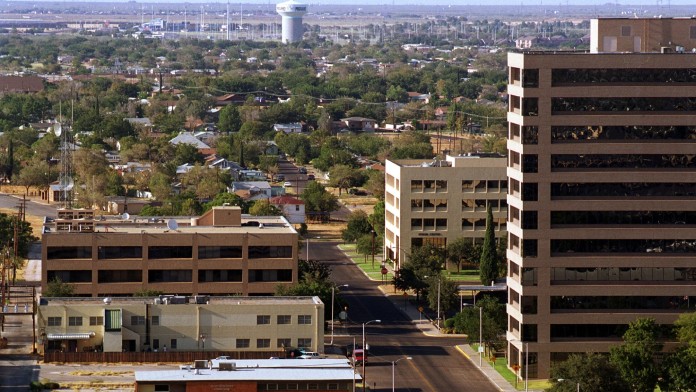Expert Insights
It’s a common perception in society that breaking the law should result in criminal prosecution, but I think that’s too black and white. People with substance use disorders are often battling mental health problems and a history of trauma and abuse. They take drugs because it takes away their pain. Yet, we know drug use is not a solution to mental health as it can result in crime, risky behavior, and even death. Which is why I was pleased to hear that Midland County has been providing a different approach. Instead of prosecuting people charged with drug-related crimes, they have been given an opportunity to choose addiction treatment instead. While these programs get a bad reputation, Midland County Drug Court recently held a graduation ceremony for 19 people from three tracks of adult felony drug court. That’s 19 lives saved, 19 people who are treated as a human, and given a second chance at life. I think we’d stand a fighting chance at tackling the opioid epidemic if other states implemented the same solution!
~ Olivia Pennelle
Paying for Alcohol and Drug Rehab in Midland
 Most Midland alcohol rehabs and drug rehabs accept multiple forms of payment, including private and public health insurance.
Most Midland alcohol rehabs and drug rehabs accept multiple forms of payment, including private and public health insurance.
If you’re uninsured or underinsured and lack sufficient financial resources to pay for rehab, you can still access quality care. Low-cost and free options for drug or alcohol rehab in Midland include:
- Methadone clinics: If you’re living with opioid dependence and have a low income, you may be eligible for reduced-cost or free medication-assisted treatment at one of these facilities.
- State-funded facilities: These facilities receive subsidies and grants from the government, which they use to provide care at little to no cost for Texas residents experiencing serious financial need.
- Sliding Scale Program: These facilities use a variable fee scale that bases the cost of each person’s treatment on their income and ability to pay. If your income is low enough, your treatment may end up being free.
According to the SAMHSA, you’ll find six addiction treatment facilities within 25 miles of Midland, TX.6 A few of those facilities offer reduced-cost or free care for financially eligible persons. If you need help paying for rehab or can’t pay at all, consider checking out:6, 7
- Permian Basin Community Centers for MHMR (Permiacare)
- West Texas Counseling and Rehabilitation (WTCR) of Midland
- Thriving United
Texas and Midland Drug and Alcohol Statistics
Here are some alcohol and drug use statistics for Texas individuals aged 12 and older:1,2,3,4,5,6
Texas Alcohol and Drug Laws
Texas lawmakers have enacted the following laws regarding substance use:1,2,3,4
Texas Good Samaritan Overdose Prevention Statute: This law is designed to encourage Texas residents to seek emergency medical attention during an overdose situation. It protects individuals who call 911 for assistance with a suspected overdose from prosecution for possession of certain controlled substances (if they have not called 911 for an overdose in the preceding 18 months).
Sandra Bland Act: This law provides for rehab for individuals arrested or convicted of non-violent crimes. Per this statute, Texas criminal justice officials must work to identify people with suspected substance use concerns and divert these individuals to an appropriate treatment facility rather than incarcerate them.
Texas Protections for Employees Seeking Addiction Treatment: Under the Family and Medical Leave Act (FMLA), Texas employees who voluntarily seek alcohol and drug treatment may be eligible for time off work. The Americans with Disabilities Act (ADA) also provides some protections for employees who seek addiction treatment.
Marijuana Laws: Texas law is among the strictest in the country regarding marijuana. Recreational use and growth are illegal, and medical use is legal but heavily regulated. Penalties for the use, growth, possession, or sale of marijuana range from 180 days in jail and a $2,000 fine to life imprisonment and a $50,000 fine.
Resources
- Texas Department of State Health Services. (n.d.). Opioid-Related Emergency Department Visits.
- Texas Department of State Health Services. (n.d.). Marijuana-Related Poison Center Calls.
- Texas Health and Human Services. Texas Department of State Health Services. (2018). Overview of Drug Overdose Good Samaritan Laws.
- Texas Department of State Health Services. (n.d.). Opioid-Related Poison Center Calls.
- Permian Basin Regional Council on Drug & Alcohol Abuse. (2021). 2021 Regional Needs Assessment.
- Substance Abuse and Mental Health Services Administration. (n.d.). FindTreatment.gov.
- Texas Health and Human Services. (n.d.). Substance Use Service Locations.
- Texas Department of Insurance. (2022, January 5). Top 40 List of Insurers.
- Benefits.gov. (n.d.). Texas Medicaid.
- U.S. Department of Health & Human Services. (2014, September 11). Who is eligible for Medicare?
- Texas Health and Human Services. (n.d.). Dual Eligible Integrated Care Demonstration Project.


